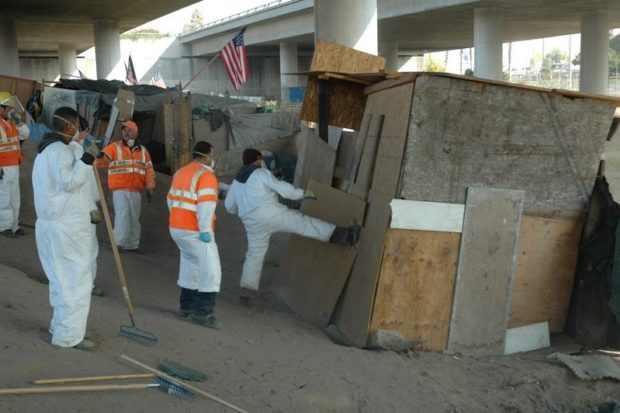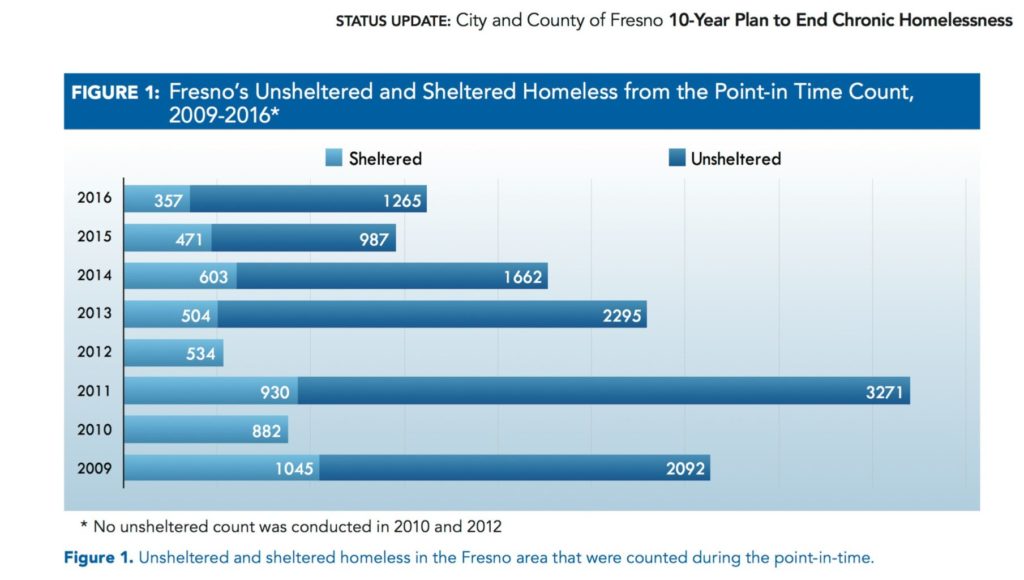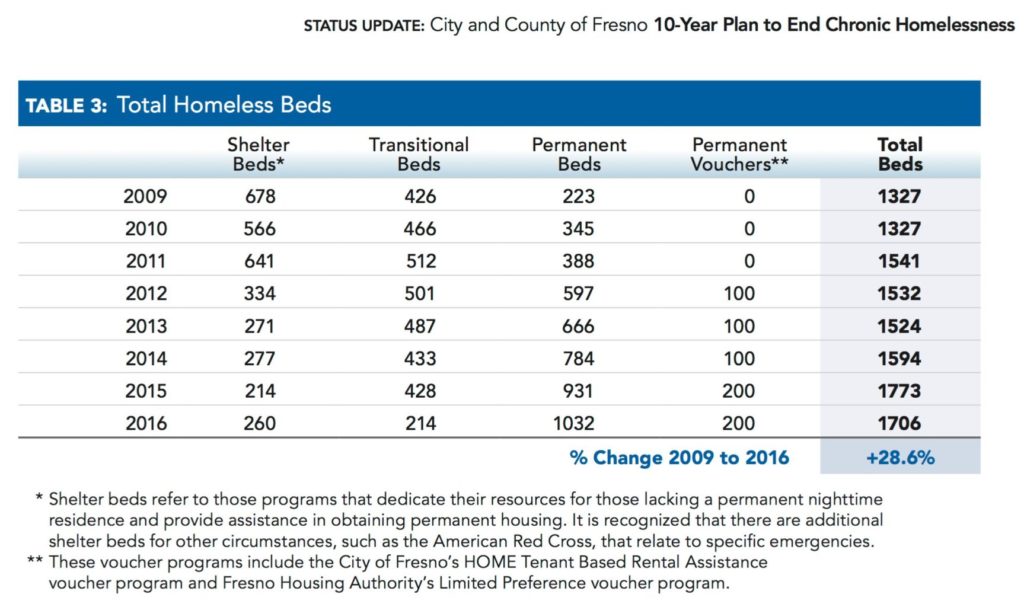
By Mike Rhodes
Proponents of the recently passed No Camping ordinance in Fresno claim that homeless people who are sleeping on public and private property are doing so by choice. They say that if they wanted to get off the streets, there are plenty of places for them to go. They suggest that homeless people should go to the Fresno Rescue Mission or the Poverello House.
Homeless advocates say there are too few shelter beds and that the ordinance essentially criminalizes poverty. They claim that there are not enough homeless shelter beds for the number of homeless people on the streets of Fresno.

time count. Although this count does not include significant segments of the homeless population (e.g., the Fresno Unified School District has identified more than 3,000 homeless children in its schools), it is the official count used by the City of Fresno.
This matters because a lack of shelter space would make it impossible for all of the homeless people in Fresno to comply with the law and avoid arrest, even if they wanted to do so. And there have been some legal rulings that say it is unconstitutional to arrest a homeless person for sleeping at night if the option of staying at a shelter is not available.
To answer the question about how many shelter beds there are for the homeless in Fresno, we did some research, looking at public documents, getting numbers directly from social service providers and a Fresno City Council member who directed his staff to find an answer to this question.
Depending on who you ask and how you define a shelter bed for the homeless, the number is between 180 and 260. A City Council member provided the 180 number, and the more or less official 2016 City and County of Fresno 10-Year Plan to End Chronic Homelessness report put the number at 260. One reason for the different numbers could be that the Tool Sheds at the Poverello House are not technically suitable for human habitation, so they might be counted by some sources but not others. If you were to house a family member in a tool shed, such as the ones used at the Poverello House, you could be arrested for child endangerment or elder abuse.
The three charts that accompany this article are from the updated 2016 10-Year Plan report that is used by the city, social service providers and others to document the status of homelessness in this community. This document, which is available online at the City of Fresno Web site, puts the total number of chronically homeless people in Fresno at 1,622. Although reasonable people will disagree about the accuracy of this number, it is the official number used by representatives of the City of Fresno and many groups working on the homeless issue.

Table 3 from the report shows that the number of homeless shelter beds has gone from 678 in 2009 to 260 in 2016. There are 416 fewer beds than we had seven years ago! If you subtract 260 from 1,622 you get 1,362. That is the number of homeless people who will be in Fresno tonight and could not get off the street, even if they wanted to, because of the lack of beds. Fresno is 1,362 beds short of having enough shelter beds for everyone who is homeless.
It should also be noted that most Fresno shelters have significant barriers to getting a bed for a night. Some are for men only, some for women only, one is only for women who are in a domestic violence situation and another is only for youth ages 13–17.
Even if you go with the higher number of shelter beds (260) and what is probably a low number of people who are homeless in Fresno, you are still 1,362 beds away from providing a bed for every homeless person tonight.
What would happen if every homeless person in Fresno decided they did not want to risk arrest for sleeping on public or private property and asked for a bed at a homeless shelter in Fresno? At least 1,362 of them would be left out in the cold and risk arrest for the crime of being too poor to rent a house, an apartment or a hotel room.

The No Camping ordinance must be repealed and replaced with a policy that gives homeless people a safe and legal place to live. The City and County of Fresno have vacant land and buildings available and could implement this new policy by the end of the day tomorrow. It would cost less than what is being done today, keep our community cleaner (assuming portable toilets, trash bins and drinking water are provided) and dramatically improve the lives of homeless people.
The next step is providing homeless people with affordable housing and whatever social services they need to make it possible for them to live a more productive and happy life. With the political will of our elected officials to allocate the needed resources and community support, we can improve the lives of homeless people and ultimately end homelessness. Another world is possible.
*****
Mike Rhodes is the author of Dispatches from the War Zone: Homelessness in Fresno 2002–2015. Contact him at mikerhodes@comcast.net. For more information, visit www.mikerhodes.us.
